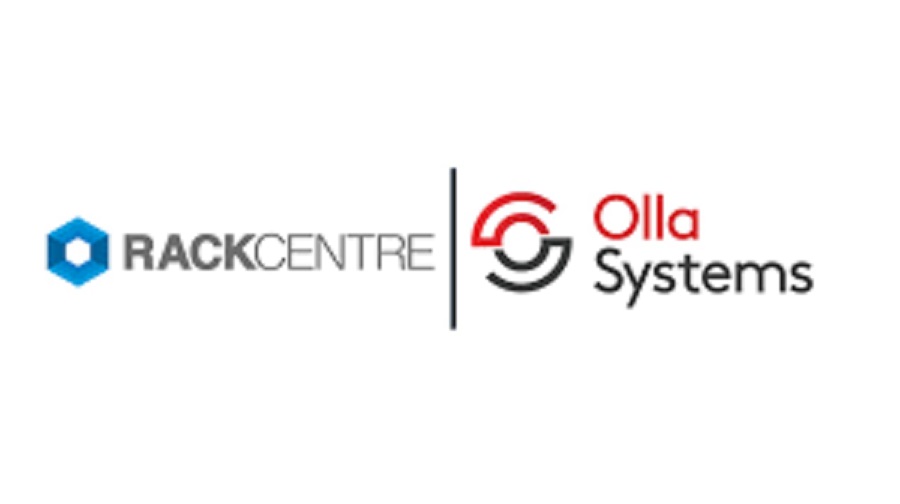E-Business
CommsWeek, CBT Develop App to Fight Hate Speech

Communication Week Media Limited, publishers of Nigeria CommunicationsWeek, and Core Business Technologies Limited (CBT) have developed mobile phone application to enable the public to report hate speech in a bid to curb the spread of extremism and sectarianism.
Hate speech is speech which attacks a person or group on the basis of attributes such as race, religion, ethnic origin, sexual orientation, disability, or gender.
According to Ken Nwogbo, a Nigerian newspaper columnist, ICT Journalist and founder, Communication Week Media Limited, the App aims primarily to tackle the impunity of hate crimes.
“Hate speech is clear and present evil, the many wars across the world were caused by the crimes of hate speech, that was why we partnered with CBT, arguably one of Nigeria’s solution-oriented, dynamic and indigenous Information Technology and Solutions service provider to develop this App” Nwogbo added.
Compatible with both Android and iOS operating systems, the App called “Pana” tackles hate speech by establishing monitoring and evaluation units in the App.
Edward Essien, CEO of CBT, said “I do not support capital punishment for hate speech, that is why we developed the App to nip it in the bud. By sentencing hate speech offender to maximum penalty, the government is inadvertently promoting hate speech”
“By that, the government is promoting one section of the society against the other, the best thing to do it trace and trap such speech” he added.
The app enables citizens to report anonymously extremist speeches, banners or activities wherever they notice them. Users can send pictures, audio, video or a written message.
Such data and information received can be shared with police and other law-enforcement and regulatory authorities.
E-Business
Visa to Establish Data Centre in Nigeria to ‘Boost Digital Economy’

Visa, global payment services giant, has announced plans to establish a data centre infrastructure in Nigeria.

Andrew Torre, Visa’s regional president for central and eastern Europe and Vice-President Kashim Shettima
According to a statement by Stanley Nkwocha, senior special assistant to the president on media and communications (office of the vice-president) on Friday, Andrew Torre, Visa’s regional president for central and eastern Europe, the Middle East, and Africa, spoke during a courtesy visit to Vice-President Kashim Shettima at the presidential villa in Abuja.
“This is in addition to its investments of over $1 billion in the country, including a substantial technological partnership with @moniepoint to foster digital payment solutions, a $200 million investment in Interswitch, and a partnership with @thriveagric to empower smallholder farmers and enhance food security in Nigeria,” the statement reads.
During the meeting, Torre said the plan to establish the data centre infrastructure aims to bring new technologies into the Nigerian market that would bolster the nation’s growing digital economy.
“Visa has been making investments and will continue to make these investments in Nigeria,” he said.
Responding, Shettima welcomed Visa’s expansion efforts, assuring the delegation that the partnership between Visa and the Nigerian government would continue to flourish.
The vice-president commended the company for investing in ThriveAgric, noting that President Bola Tinubu’s administration is deeply committed to repositioning the agriculture sector, which remains a top priority in its 8-point agenda.
“Nigeria is where the action is. Of the 10 fintechs in Africa, about eight are in Nigeria, with moniepoint as the newest addition,” Shettima said.
“Agriculture is key to the 8-point agenda of the present administration. President @officialABAT is really keen on repositioning the agriculture industry here, and we have to invest in technology, we have to invest in modernisation.”
On January 23, Moniepoint, a Nigerian fintech company, announced it secured investment from Visa to support the growth of small and medium enterprises (SMEs).
Andrew Torre, Visa’s regional president for central and eastern Europe and Vice-President Kashim Shettima
E-Business
FCTA Approves N242.8m for Microsoft 365 Licence to Digitise FCT-IRS

Federal Capital Territory Administration (FCTA) has approved N242.8m for the procurement of a Microsoft 365 licence for its Internal Revenue Service (FCT-IRS) as part of efforts to digitise the service’s operations.

Mr Michael Ango, acting executive chairman of FCT-IRS, disclosed this after the FCT Executive Committee meeting chaired by Mr Nyesom Wike, the minister of FCTA, in Abuja on Wednesday.
Ango said that the FCTA was making significant investments in technology to enhance revenue generation and collection.
“So, this is also one of those investments in technology that the FCT is undertaking.
“The licence, if procured, will enhance our ability to move most of our manual processes into automated processes.
“It will enhance our ability to communicate within our offices,” he said.
The executive chairman added that the move would also reduce the use of paper and ensure better record-keeping through the storage of information and documents in the cloud.
According to him, “The licence will essentially enhance our operations and assist us in generating revenue for the development of the FCT under Wike’s leadership.”
E-Business
Rack Centre Hosts Olla Systems’ Private Cloud Infrastructure

Rack Centre, West Africa’s Tier III Carrier and Cloud neutral data centre, has welcomed Olla Cloud Service, a new private cloud service by Olla Systems Limited, a leading provider of innovative technology solutions, to its facility.

Hosting at Rack Centre, Olla Cloud Service runs on a state-of-the-art, cloud-enabled infrastructure for enterprise applications across diverse platforms, including mission critical application, web applications as well as containerised applications using Kubernetes.
Lars Johannisson, CEO, Rack Centre, welcoming Olla Systems, noted that the partnership with Olla Systems Limited would reflect the company’s commitment to providing African businesses with high- quality cloud computing services.
He noted that Olla Systems would enjoy Rack Centre’s 13.5MW data centre campus facility, designed to meet the highest international standards and offering scalable solutions to Hyperscalers, Enterprises, and Cloud service providers.
As part of its commitment to sustainability, the facility is equipped with energy-efficient systems, advanced cooling technologies to mitigate environmental impact and an optimally-designed feature to handle high-density workloads with precision.
According to Johannisson, “With Olla Cloud Service hosting at Rack Centre, clients will experience fast performance and low latency, enabling businesses in Africa to access world-class cloud computing services within a secure and compliant local infrastructure.”
Also speaking, Olusola Adenuga, chief executive officer, Olla Systems Limited, expressed enthusiasm about hosting at Rack Centre, noting that Olla Cloud remains a groundbreaking private cloud solution for businesses.
While highlighting the benefits of the partnership between Rack Centre and Olla Systems, Adenuga disclosed that “subscribing to Olla Cloud Service is cost-effective to customers because of its local currency payment advantage.”
She also noted that the partnership between the duo, provides businesses the opportunity to meet regulatory requirements of data residency, while enjoying world-class infrastructure as a service (IaaS) locally.
“Other benefits of hosting with Olla Cloud include: 24/7 support, unparalleled performance, scalability and agility.” she added.

 Broadcasting3 days ago
Broadcasting3 days agoPublic Outrage, Legal Threats as Abuja Council Demands N500, 000 as TV Levy

 E-Financial3 days ago
E-Financial3 days agoFIRS Partners Flutterwave for Digital Payment Collection

 General News2 days ago
General News2 days agoNigeria, Kenya among Nations Running out of HIV Drugs – WHO

 News2 days ago
News2 days agoNAFDAC Destroys over N1 Trillion Fake Drugs in Anambra

 Telecom3 days ago
Telecom3 days agoNigeria Charts New Course to Bridge Gender Digital Divide at UN’s CSW69

 General News3 days ago
General News3 days agoNIN Enrolment Hits 117.3m – NIMC

 Telecom2 days ago
Telecom2 days agoTikTok and Truecaller Face NDPC Investigation Amid Data Protection Concerns

 Telecom2 days ago
Telecom2 days ago9mobile Denies Shutdown Rumours, Promises Improved Services
















